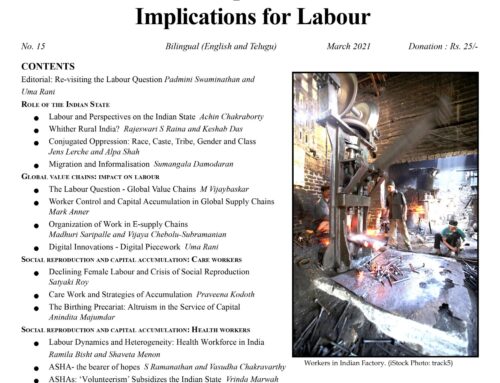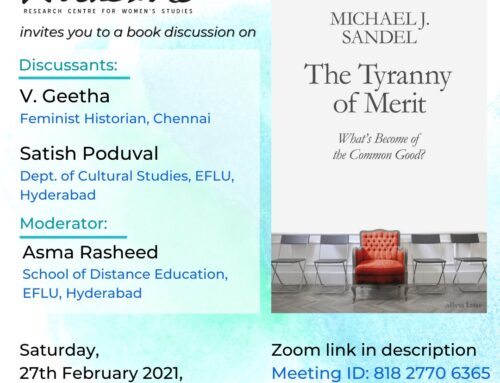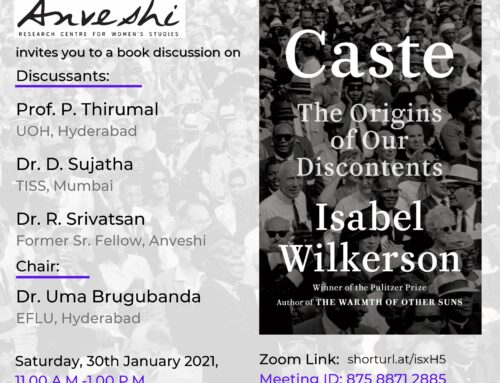Concept Note:
Though domestic violence is a universal phenomenon, the need to study dalit women as a separate category got momentum in recent years. Dalit movement that brought out the public forms of violence and exploitation faced by dalit women (different forms of untouchability, segregation, abuse and discrimination in the society; sexual exploitation by the landlords; forceful sexual bondage in the name of Hinduism such as Joginis; sexual attacks by upper castes and agencies of the state) neglected the double patriarchies (Bama)-“discreet” patriarchy of their own caste and an “overlapping” patriarchy of the upper caste – as well as poverty faced by dalit women, since centuries.
The present work shop is intended to address issues concerning dalit women and the violence they are facing in the families. The out side influences such as globalization, liberalism which are ruling the market affected the dalit women and dalit families too. Even the state sponsored development programmes like women empowerment led to overburdening and self exploitation. The new agricultural technology and other modernization schemes displaced the dalit women from active labour force.
On the other side the expectations of educated dalit men are increasing tremendously. The dowry system which was a brahmanical tradition entered into dalit families. Simultaneously, in recent past the dowry deaths of dalit women are also increased. The drastic change in society reflecting on dalit families’ occupation, habits, demands which end up in violence in the family. The position of dalit woman in the family is decided by the market control of the dominant caste. They are not at all domesticated in the dominant caste structure. There is a need to understand the issues of dalit women separately as all positions are not the same, all voices are not the same and all situations are not the same. While dominant caste women try to break the walls, dalit women demand walls to protect their bodies.
Dalit women should be seen as focal points which absorbs the maximum force of a caste patriarchic society .Their well being is an indicator of the health of dalit society. Their suffering is an indicator of the discrimination and oppression faced by dalit society.
In this context, we invite dalit scholars, activists, lawyers and counselors to discuss on the following questions which will be helpful in making an assessment on the different theoretical positions on the present study- ,
[/wpcol_1half] [wpcol_1half_end id=”” class=”” style=””]INVITATION
Anveshi Cordially Invites You to the 2nd Work Shop
On
Domestic Violence and Dalit Women
Date: 18th December 2012, Time: 10.00 A.M to 4 P.M.,
Venue: Anveshi Research Centre for Women Studies,
D.D.Colony, Bagh Amber pet, Hyderabad
The questions to be discussed in the workshop are-
Is there a need to study dalit women as a separate category in domestic violence ?
Is it an issue for dalit community?
If it is an issue, what kind of supportive system dalit women have with in the community?
Do they see any ‘reasons’ for particular events or instances of abuse and violence? Do they see public forms of caste discrimination or violence contributing to violence at home?
How does caste sanghams or adjudicatory forums such as caste Panchayats mediate the complaints of women? What kind of access do women have to these forums? What kind of complaints do they accept for mediation?
f) In what situations do they approach public institutions – counseling centres, NGOs, police personnel and courts for help? What kind of access do they have to such institutions? Do they require the support of the family and the community in approaching the public institutions?
g) How do public institutions respond to women’s pleas or complaints? Are they seen by women as useful? How does caste play out in these locations?[/wpcol_1half_end]





Leave A Comment